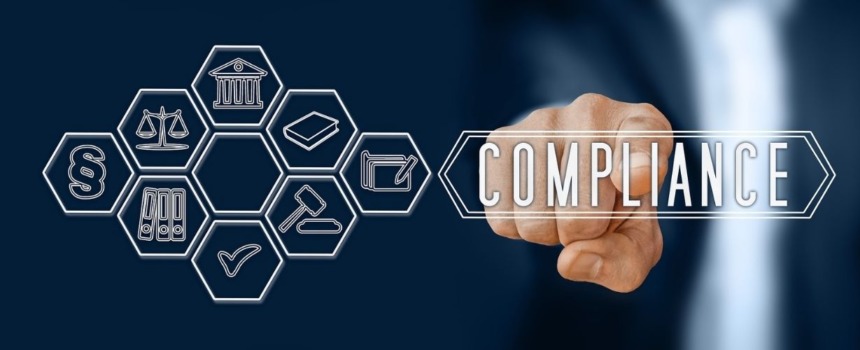One of the most important aspects of maintaining a successful business is to ensure your clients are reliable. If you don’t have the right identity-proofing strategies in place, thieves can exploit weaknesses in your system to carry out various crimes, including using fake identities to launder money. The world of digital technology is changing fast; businesses that don’t adapt to the latest technology and developments put themselves and their clients at risk, particularly in preventing financial crimes. If you’re trying to increase your company’s growth, there are a few areas you can focus on to achieve your goals.
What Are AML and KYC?
The comprehensive Anti-Money Laundering (AML) framework was designed to prevent financing of terrorists, money laundering, and other dangers to a financial system. The legal obligation to analyze the risks by conducting AML checks is imposed on anyone who operates in the following industries: credit institutions, financial Institutions, auditor insolvency professionals, external accountants, tax advisors, independent legal experts, trust or company service providers, real estate agents, casinos, companies operating in crypto asset-related activities, art market participants, and letting agents. If your business is in any of these areas, you need to check with the regulatory authority to ensure compliance.
AML checks are designed to ensure the money you receive isn’t derived from terrorist or criminal activities. Similarly, Know Your Customer (KYC) checks are designed to verify the identity of your clients and investors along with their financial activities and any risk they might present. Conformity with AML is always required of professionals such as accountants, solicitors, and lawyers representing clients. There is no legal obligation for all businesses to perform AML check-ups. Still, we encourage all businesses to ensure the funds they receive haven’t come from criminal or terrorist activity. It’s good for business.
Areas To Focus on for Business Growth
Corporate KYC
Like individual accounts, which require registration, checks, and monitoring, business accounts need KYC procedures too. While the procedure for business accounts is similar to KYC for individuals, the requirements for corporate accounts differ. Furthermore, the transaction volume and transaction amount, as well as additional risk-related factors, are typically more prominent, so the processes are more complex. These processes are typically described as Know Your Business (KYB).
Anti-Money Laundering (AML)
Anti-Money Laundering (AML) is a set of laws regulating cash flow within the banking system. The laws are intended to stop the financing of terrorists and money laundering as mentioned previously. The primary goal for AML is to stop the illegal use of money and make sure people aren’t using their wealth to fund illegal activities and/or terrorist acts.
The biggest issue in AML is that it lacks an exact definition of what it means or what it covers. AML is among the most crucial tasks for any company. It’s a complex and challenging field that requires extensive experience to be successful. There are many definitions for AML compliance and ways it can be applied in various situations. This makes it challenging to implement these rules and avoid legal actions by regulators or authorities.
Performing AML/KYC Screenings on People
While it’s important to ensure KYC compliance, it’s also essential to provide compliance that’s cost-effective, flexible, and doesn’t overburden the user. A survey by Thompson Reuters found it slows down Financial Institutions (FIs) to a point that they can’t keep up with rising costs and complexity. In fact, the survey showed that 89% of corporate customers haven’t had a positive KYC experience, and 13% actually changed their FIs because of it.
In addition to the poor user experience, the actual cost of running a complete KYC compliance program continues to grow. Of the 800 FIs included in the study, there was a median cost of $60 million annually, while certain firms were spending as much as $500 million.
Compliance professionals will not be able to avoid the burden of these requirements and expectations in the future. It’s important to recognize that the regulations play an important role in fighting fraud, stopping the financing of terrorists, money laundering corruption, bribery market fraud, and other financial crimes. Although the battle is not easy and sometimes costly, the importance of the regulations is obvious. It protects consumers as well as the entire banking system against criminal attacks.
Choosing the Right KYC Service Provider
Compliance officers and other personnel charged with ensuring compliance with regulations and fraud prevention may be unable to locate or implement Know Your Customer solutions. It can facilitate risk-based approaches, decrease the time required to onboard customers, and doesn’t interfere with existing systems once integrated. The selected KYC solution should also solve the four key questions that determine whether the customer is reliable:
- Does this person exist?
- Is this the person they claim to be?
- Are we able as an organization to contact the person?
- Should we as an organization do business with this individual?
An AI-powered, comprehensive solution such as the Jumio Trusted Identity Platform provides end-to-end KYC and AML by integrating various technologies to minimize risk and create trust. This includes but isn’t restricted to authentication of documents, validation based on data facial recognition match-ups, screening against PEP and global sanctions lists, identity risk, and monitoring of transactions.
With an automated KYC system that follows a risk-based method, companies can easily authenticate identities, build confidence, and prevent their company from becoming a part of money laundering without jeopardizing customer experience or compliance with AML.
Conclusion
Technology has opened a door to fraudsters, but it has also enhanced the efficiency of many sectors. Technology has significantly improved the efficiency and costs associated with the KYC (Know Your Customer) procedure. Utilizing technology to simplify KYC procedures is a method to ensure customer satisfaction and enable growth for many businesses.





Comments